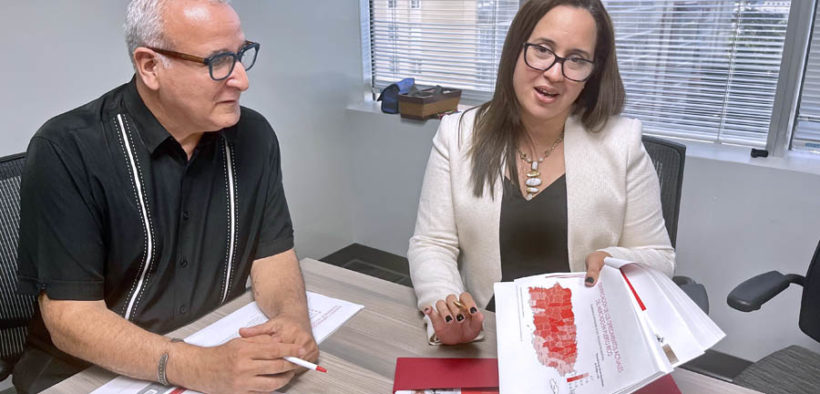Study: Pandemic boosted internet use in Puerto Rico, but gap remains

The COVID-19 pandemic boosted the use of the internet among Puerto Rico’s general population to 88% because it became more necessary to access services, although people 55 or older were left behind at 71.1%, according to the “Study on the digital divide and broadband access of the population ages 55 or over in Puerto Rico, 2022,” by Estudios Técnicos Inc. (ETI).
The study commissioned by AARP Puerto Rico, also confirmed it is imperative to provide older adults with access to broadband internet and technological education to close the “digital divide.”
It also recommends that government and private businesses should come together in a multisectoral alliance to promote technology adoption, public policy, and education initiatives in support of older adults.
The study states that 88.3% of the general population has an internet connection at home but only 71.7% of older adults enjoy this service.
Likewise, 95% of the population aged 12 and older has mobile phones, but in the case of adults older than 55, the number of those who have a cell phone is reduced to about 89%.
“When analyzing the data of the general population of internet users and non-users in Puerto Rico, it is observed that the profile of people older than 55 who are currently not accessing the internet are mostly women, with an average of 74 years, widows, with a high school diploma and low socioeconomic level,” said Anitza Cox, director of ETI’s Analysis and Social Policy Division.
“[They have] a median income of less than $10,000, below the median income of people 65 and older on the island, which is $18,682,” said Cox.
Cox added that older adults’ internet access is primarily through cell phones (89%), and this can make it difficult to use it.
“Owning other devices, such as computers (36.5%) and tablets (32.5%) is lower among the 55+ population when compared to the population of Puerto Rico, which limits, in some instances, high-speed internet access,” said Cox.
“In the particular case of the growing population of older adults on the island, with 27% of people aged 60 or older, it is increasingly necessary to facilitate numerous government services and also financial services and telemedicine, food purchases among others and break with social isolation,” said José Acarón, state director of AARP Puerto Rico.
“If they don’t improve that access, the government is actually limiting services to a large part of the population and in terms of the private sector they are losing a segment of their market that cannot reach their products,” said Acarón.
The AARP official stated there are federal funds to guarantee 100% broadband access for 100% of the population in about five years.
“We must begin now to take measures for technological education and incentives for companies to give the service to older adults so that once it is available, people 55 years or older have the resources and know how to surf the internet for their needs,” said Acarón.
“Instead of having many pages with different instructions in each agency, they can be unified with similar platforms for the entire government that are easy for users to understand,” said Cox.
Acarón commented that the minimum that should be aspired to is that in the family group in which the elderly lives there is at least one person with access to broadband.
“Caregivers, or a family member of the elderly, should have good access to the internet so they don’t fall behind in the services they need,” said Acarón.
The AARP confirmed that there are discussions taking place among representatives of government, the private sector, and nonprofits to develop a multisector plan to advance the recommendations of this study.












